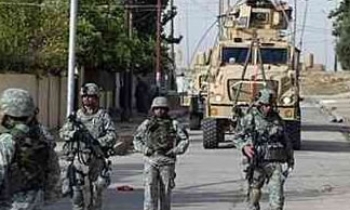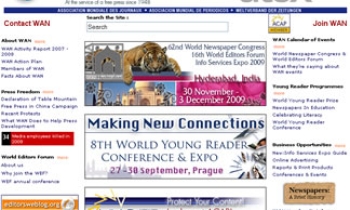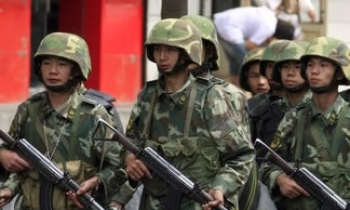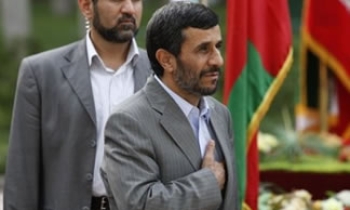This nation of roughly 15 million the largest and wealthiest of Central Asia’s five republics struggles daily to balance its booming economy with a still tentative democracy. Caught in the middle is Kazakh journalism.
Watched closely by the government, plagued by self-censorship and its own, widespread corruption, the news business in Kazakhstan is "probably the best of the ’stans and the most professional," says George Krimsky, a former Associated Press reporter in Moscow and a journalism trainer with years of experience in Central Asia. "But that’s not saying much."
Journalism standards in Kazakhstan are lagging, and they are not likely to get much better in the near term. The government of President Nursultan Nazarbayev expected to easily win re-election on December 4 continues to maintain a firm grip on a largely compliant press. All of this does not bode well for the development of real democracy in Central Asia, a region that’s important to American geopolitical interests.
"If you’re working in mass media (in Kazakhstan) you’re watched very closely by the government," said Assel Karaulova, president of the Kazakhstan Press Club, a US-supported organization. "Officially, there is no censorship here. You can buy newspapers that criticize the government. However, in many cases the government is trying to control the press with many mechanisms."
Among the means of control: direct media ownership by the government, members of the Nazarbayev family or members of the of the president’s inner circle; blocking of websites and the use of the "tax police," which scrutinizes wayward media outlets for alleged tax-code and other procedural violations.
Reporters have been jailed and deported, at least six newspapers have been closed or brought to trial over the last two years and journalists have been beaten and intimidated, according to local journalists and the Toronto-based International Freedom of Expression Exchange (IFEX). The highest-profile case involved Sergei Duvanov, a journalist who wrote about a massive government corruption case known as Kazakhgate. Duvanov served over a year in prison after being convicted on a rape charge in early 2003. He maintains that the case was politically motivated. The government’s tough tactics appears to have played a significant role in making Kazakhstani media outlets shy away from controversial topics. Media outlets have also been known to suffer ethical lapses.
"The forbidden ground is: internal and foreign policy, oil profits, local politics and bribery in government," said Alyona Alyoshina, deputy editor of a business magazine called Region, published in the western Kazakh city of Aktobe. "Every journalist should know what he can do and what he can’t. Sometimes reporters are able to tell the truth, sometimes they aren’t. It usually depends on what kind of information you’re going to write."
Media tentativeness might not matter if it wasn’t so clear over the past 15 years that an unfettered press is crucial for democracy to take root. "While everyone is pushing for democratic reforms, it’s equally important for the media to step up to the plate," says Chris Krafchak, an attorney who directs operations in Kazakhstan and Kyrgyzstan for an American Bar Association program known as CEELI (Central European and Eurasian Law Initiative). "Despite the obvious obstacles that the government has made on independent media (in Kazakhstan), which has had a chilling effect, the journalism community has to hold itself to higher standards."
But standards are hard to come by in a country with no history of either political or journalistic independence. Nazarbayev has been clearly worried by turbulence in neighboring states in particular the March revolution Kyrgyzstan and the May violence in the Uzbek city of Andijan. [For background see the Eurasia Insight archive]. He does not want another Georgia or Ukraine revolution in Kazakhstan. The Kazakh press, meanwhile, seems mainly intent on making money. Thus, accurate and aggressive reporting sometimes takes a back seat to economic concerns.
Rashid Dyusembayev, editor of the Russian-language newspaper Capital and the English-language weekly Kazakhstan Monitor, both business publications, said, "the standard of our articles is to interview both sides and an expert." The Monitor allows more freedom of expression than does Capital, he added. "It’s easier for us to write in English," said Dyusembayev. "We can be harsher." But, he cautioned, "We are always watching our words."
Dyusembayev also freely admitted his newspaper accepts money to run stories written by politicians, without disclosing that the stories are really "advertorials." Such stories run as any other in the news pages. This "hidden advertising" method of reporting is widespread in Kazakhstan and throughout Central Asia.
Most Kazakhstani journalists do not see anything wrong with the practice of "hidden advertising." The practice of writing puff pieces in exchange for under-the-table payments was, as one journalist said with a shrug, "the way it’s done here."
"Corruption in general is a major problem in Central Asia," says Krafchak. Under-the-table payments to journalists by politicians and businessmen are "a fairly common way for journalists to supplement their incomes."
Tulegen Askarov, a journalist and consultant for the non-profit group Transparency International, said in an e-mail interview: "The press in Kazakhstan is not free. Only the media [outlets that] are loyal to the authorities have full access to printing presses, the distribution system and to advertisers."
Freelance reporter Alexey Sorokin, an eight-year veteran of Kazakh journalism, explained it this way: "Our press is very centralized. There are a few big companies that own TV stations. They have strict relationships with political parties and journalists cannot go outside the borders of those agreements."
Journalistic self-censorship is another matter of concern in Kazakhstan. Media outlets of all kinds "have a list" of those who cannot be written about, Sorokin said. "After you work there a while you get to know who’s on it." Physical threats against journalists have lessened over the last eight years, Sorokin said. "Here, we understand what we can write about. You take this responsibility and you take the consequences. Each newspaper has its own path."
Timothy Kenny, a former foreign editor, non-profit foundation executive and Fulbright scholar, is an associate professor of journalism at the University of Connecticut. He traveled to Kazakhstan in 2003 and 2005 to conduct journalist training seminars.









